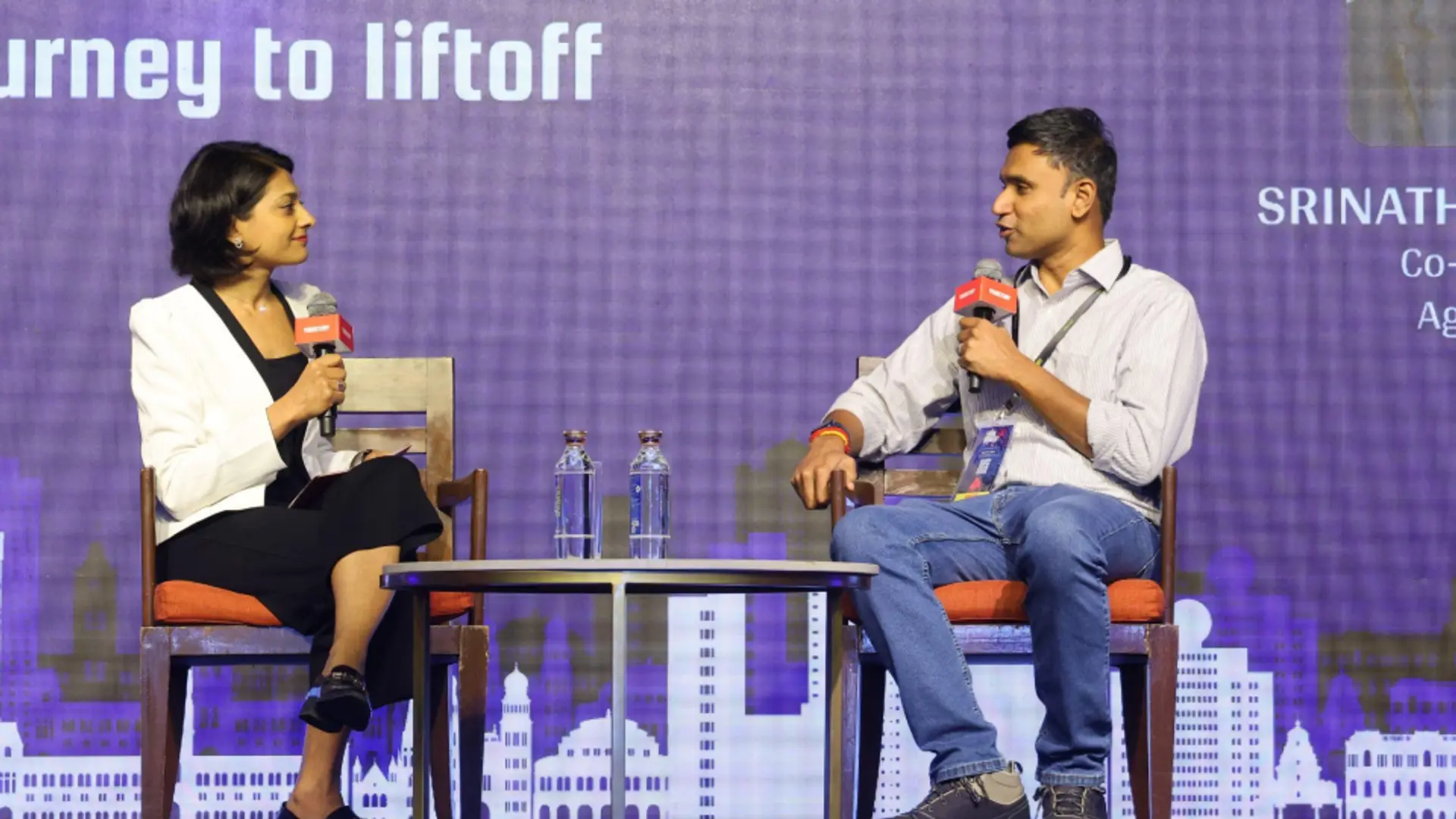Space is not an exclusive domain for the wealthy; it's crucial to demystify this myth: Agnikul CEO
Space fascinates many people, particularly young people who are "super excited” about it, said Srinath Ravichandran, Co-founder and CEO of Agnikul Cosmos, at Tamil Nadu Story 2024. This excitement reminds him of why he got into the field in the first place.
The poster boy of India’s space industry, Srinath Ravichandran, Co-founder and CEO of Agnikul Cosmos, believes it’s crucial to demystify the perception that space is an exclusive domain for boys and the wealthy.
“All the big startup stories in the US for space still seem to be driven by billionaires or people who were already billionaires or close to it before they started. Take Elon Musk or Jeff Bezos, for example. Here (in India), none of us had that kind of money to start,” Ravichandran told a packed audience during a fireside chat at Tamil Nadu Story 2024, YourStory’s flagship event that strives to empower the startups and homegrown brands of Tamil Nadu.
However, the perception that space is for the rich is gradually changing in India, asserted Ravichandran. It fascinates many people, particularly young people who are “super excited” about it, he added. This excitement reminds him of why he got into the field in the first place.
This is the reason why Ravichandran tries to spend a lot of time with anyone who wants to do something in space.
“I grew up as an aerospace enthusiast ... Being able to actually attempt building a real rocket that can go to space from Chennai is a dream come true,” said a jubilant Ravichandran.
Enabling the ecosytem
Chennai-based Agnikul Cosmos, a startup incubated at IIT-Madras, was founded in 2017 by Ravichandran and Moin SPM.
After four failed attempts, the spacetech startup made history on May 30 this year, with a triumphant sub-orbital test flight of its launch vehicle, Agnibaan SOrTeD (suborbital technological demonstrator), powered by the Agnilet engine—the world’s first single-piece 3D-printed semi-cryogenic rocket engine.
“It is still surreal. I sometimes play the video at night, and it still doesn't feel like it actually happened, even though it did,” shared the Agnikul CEO, who started his career as a Wall Street trader but soon realised he was an engineer at heart.
Ravichandran stated that, since May 30, at least 10-15 people have reached out to him saying they want to start something in space.
“In a small way, we are enabling the ecosystem, so that is a great feeling,” he said.
India’s growing space sector
The space sector, which is opening up in the country, will branch off into two streams, pointed out Ravichandran.
He explained that the ISRO (Indian Space Research Organisation) community will focus on areas where there are no business models–such as the first human mission to orbit from India and the Indian Orbital Space Station, officially called 'Bharatiya Antariksha Station'. And for areas that ISRO has already addressed and where business opportunities exist, it's up to startups to take them forward, the Agnikul chief added.
Apart from Agnikul, Skyroot Aerospace, Pixxel, Dhruva Space, and Bellatrix Aerospace are some of the other startups driving innovation in both space launches and downstream technologies.
“How should a successful private launch company in India be? That is still being figured out, or rather, we are all in the process of figuring it out,” said Ravichandran.
Agnikul is betting on 3D-printed rocket engines for affordable space launches. Explaining the reasoning behind choosing this approach, Ravichandran said it was because people are waiting for too long to get to orbit. To reduce launch times, it had to make rockets quickly; one focus area is to expedite the production of rocket engines, which take the most time, he added.
“Our team has come up with a technology where the entirety of the rocket engine is printed in a single shot without any human interference. In a way, it is like automated engine making,” he said.
3D printing enables the startup to iterate hardware as quickly as software.
The Agnikul chief said that anyone with a payload should consider three things: mass (which determines the cost), destination, and origin.
Ravichandran pointed out that the goal is to develop a framework wherein, with just these three inputs, a launch can be scheduled within two weeks. 3D printing, mobile launch pads, and modern avionics are all steps toward solving this challenge. That’s how Agnikul is working to make space more accessible, he said.
The startup will also focus on reusability going forward, Ravichandran said, adding, “Our vehicles are capable of being reused ... Every launch from now on will have a secondary objective of testing technology related to recovery.”
According to the Agnikul CEO, the spacetech firm is actively working on having a multi-mission testing plan, so that, within the next 10 missions, the startup will be fully sustainable from a vehicle standpoint.
“The deorbiting protocol is something that we want to follow; our vehicles will not be in orbit, if they don’t have to be in orbit,” he added.
Space agencies worldwide aim to use reusable launch vehicles for rockets to save millions of dollars. Private space tech companies such as Musk-led SpaceX and Bezos-led Blue Origin are developing fully reusable launch vehicles.
“Do your job and come back,” Ravichandran remarked, adding, “It’s a vehicle; it should not just go and stay where it goes.”
Edited by Swetha Kannan




